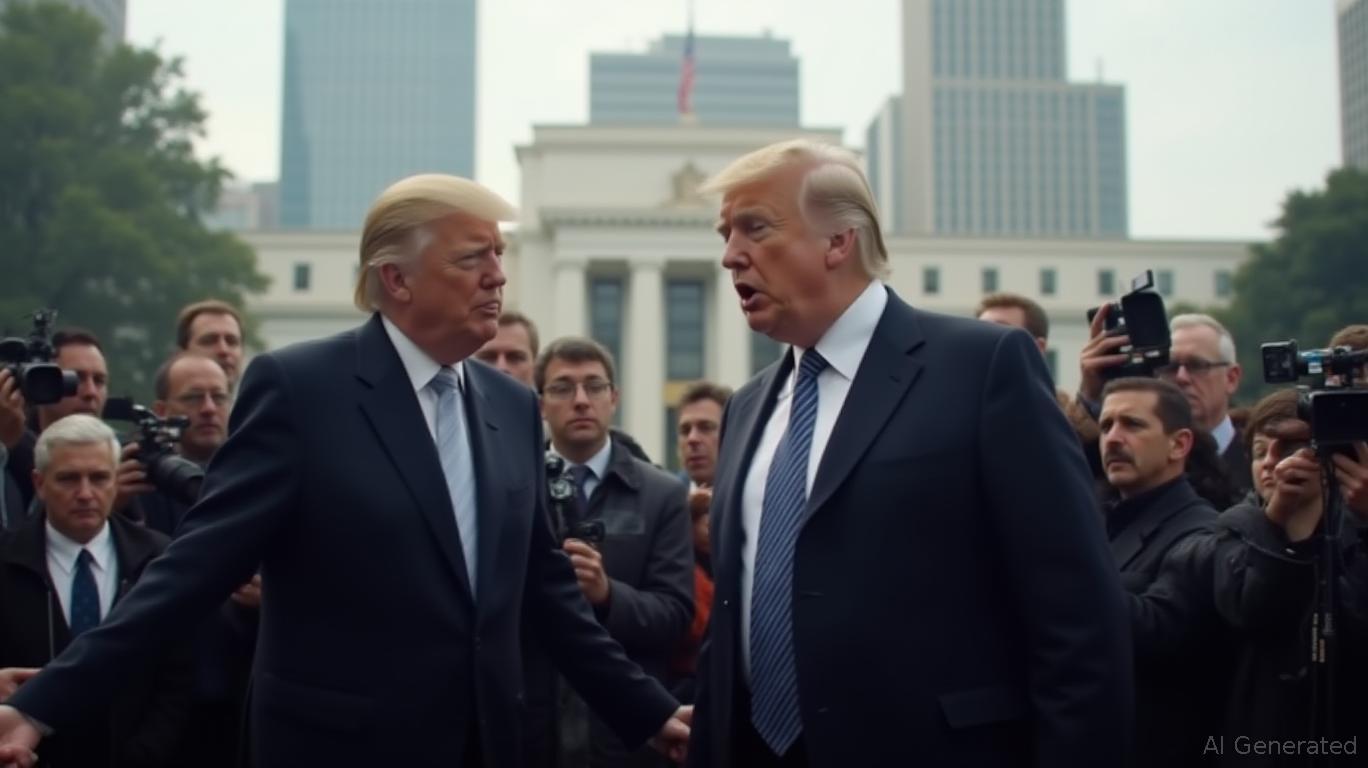JPMorgan Sees Tariff Impact on U.S. Inflation
- JPMorgan highlights potential downside risks to U.S. core CPI.
- Tariff pressures could elevate headline inflation in H2 2025.
- Financial markets may react to inflation data shifts.
J.P. Morgan predicts potential downside risks to the U.S. Core CPI due to tariff dynamics and disinflationary elements, ahead of the key inflation data release.
Implications for financial markets include potential volatility in rates and cryptocurrencies, as tariff-related pressures may affect the Federal Reserve’s approach to monetary policy.
JPMorgan Global Research projects that near-term tariff dynamics may increase headline inflation while certain components could pose downside risks for U.S. core CPI. This comes amid a backdrop of evolving economic pressures on inflation postures.
Led by Bruce Kasman, J.P. Morgan Global Research identifies tariff effects as a core driver of U.S. inflation dynamics for H2 2025. Priya Misra of JPMorgan Asset Management anticipates a hotter July CPI, yet notes the Fed might remain flexible.
Tariff-related pressures on inflation could constrain Fed policies, affecting markets like rates and crypto, notably BTC and ETH. The anticipation of continued inflation is crucial for policy setting and investor sentiment.
Macro indicators like CPI are pivotal in understanding financial market behavior. As tariff influences escalate, the Fed’s potential interest rate adjustments may impact economic landscapes, particularly in sectors exposed to tariff imports.
Discrepancies in inflation components may arise, particularly if services inflation remains soft, contrasting with headline tariffs. Expert analysis points to potential policy constraints impacting financial strategies.
Pervasive global economic shifts have often led to realignments in central bank positions, indicating a potential continued volatility in U.S. CPI assessments. Historical trends suggest markets may adjust quickly to any regulatory or policy changes.
Bruce Kasman, Head of Economic Research, J.P. Morgan Global Research, – “Global core inflation is projected to increase to 3.4% annualized in the second half of 2025, largely due to a tariff‑related U.S. inflation increase.”
Disclaimer: The content of this article solely reflects the author's opinion and does not represent the platform in any capacity. This article is not intended to serve as a reference for making investment decisions.
You may also like
Solana News Today: Validators to Decide Solana’s Next Big Leap in Speed and Scale
- Solana validators consider Alpenglow upgrade to achieve 150ms finality and 107,664 TPS, enhancing its high-performance blockchain position. - Upgrade aims to narrow Solana-Ethereum performance gaps, leveraging PoH and parallel execution for scalability in DeFi, gaming, and trading. - Solana's $0.0003/tx cost vs. Ethereum's $4.02/tx and 100M+ daily transactions highlight its cost-efficiency edge in competitive blockchain markets. - Potential SEC-approved Solana ETFs by October 2025 and REX-Osprey ETF's $2

XRP News Today: Central Banks Redraw the Map as Crypto Forces CBDC Acceleration
- BIS reports stablecoins/crypto drive 1/3 of central banks to accelerate CBDC development, with 91% still engaged in projects. - Emerging markets show higher stablecoin adoption in cross-border payments, while 67% of economies will soon regulate cryptoassets via bespoke frameworks. - Ripple's XRP maintains relevance in SBI's multi-rail payment system, coexisting with Chainlink's control layer for interoperability and liquidity. - BIS Innovation Hub advances blockchain-based solutions, aligning with 14% SW

Senator Aims to Make Every Peso Public With Blockchain Budget Vision
- Philippine Senator Bam Aquino proposes blockchain-based national budget to enhance transparency, aiming to make every peso traceable by citizens. - The initiative would expand existing blockchain infrastructure by the Department of Budget and Management (DBM), currently tracking SAROs and NCAs via Polygon's network. - BayaniChain supports the vision but clarifies no direct involvement, emphasizing blockchain's role in creating immutable records to combat corruption. - No formal bill has been filed yet, w

Trump's War on the Fed: A Battle for Economic Autonomy Unfolds
- President Trump removed Fed Governor Lisa Cook via Article II authority, citing FHFA's fraud allegations over conflicting mortgage residency claims. - Cook denied wrongdoing and vowed legal action, with the Fed defending its independence through "for cause" removal protections in the 1913 Act. - Critics labeled the move an "authoritarian power grab," warning it risks politicizing monetary policy and repeating 1970s-style economic instability. - Market reactions mixed as bond yields rose and analysts emph

